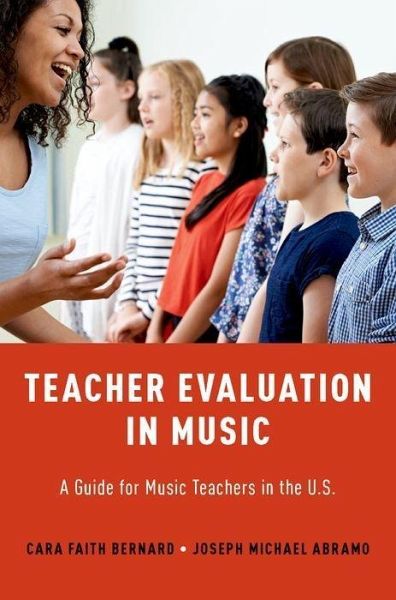
Teacher Evaluation in Music
A Guide for Music Teachers in the U.S.
Versandkostenfrei!
Versandfertig in 1-2 Wochen
28,99 €
inkl. MwSt.

PAYBACK Punkte
14 °P sammeln!
Teacher Evaluation in Music: A Guide for Music Teachers in the U. S. aims to help music teachers navigate the controversial terrain of teacher evaluation. Rather than entering the debate on policy divorced from practice, this book is intended as a pragmatic approach to help music teachers to thrive within teacher evaluation systems and as a way to improve practice. Using Shulman's concept of content knowledge, general pedagogical knowledge, and pedagogical content knowledge, this book strives to help music teachers find a balance between advocating for themselves and their programs and for usi...
Teacher Evaluation in Music: A Guide for Music Teachers in the U. S. aims to help music teachers navigate the controversial terrain of teacher evaluation. Rather than entering the debate on policy divorced from practice, this book is intended as a pragmatic approach to help music teachers to thrive within teacher evaluation systems and as a way to improve practice. Using Shulman's concept of content knowledge, general pedagogical knowledge, and pedagogical content knowledge, this book strives to help music teachers find a balance between advocating for themselves and their programs and for using teacher evaluation to improve their teaching. The book covers history of policy and law of teacher evaluation and the competing uses of teacher evaluation to rate teachers or as a professional development tool. The descriptions of policies, laws, and competing uses are approached in a way to help music teachers use teacher evaluation for their benefit to grow as professionals. This book has chapters devoted to giving detailed and specific strategies in key areas that research has suggested music teachers struggle to implement: questioning, literacy, differentiated instruction, and assessment. Complimenting these key areas are sample lesson plans which apply the strategies of questioning, differentiation, literacy, and assessment discussed in each chapter. These lessons serve as a resource and guide for teachers to develop their own lessons and improve their practice. The final chapter gives guidance on how music teachers may talk to administrators and evaluators to make teacher evaluation productive. Through these detailed descriptions of understanding teacher evaluation, talking to evaluators, and improving practice, music teachers may not just survive but thrive in these systems of accountability.












